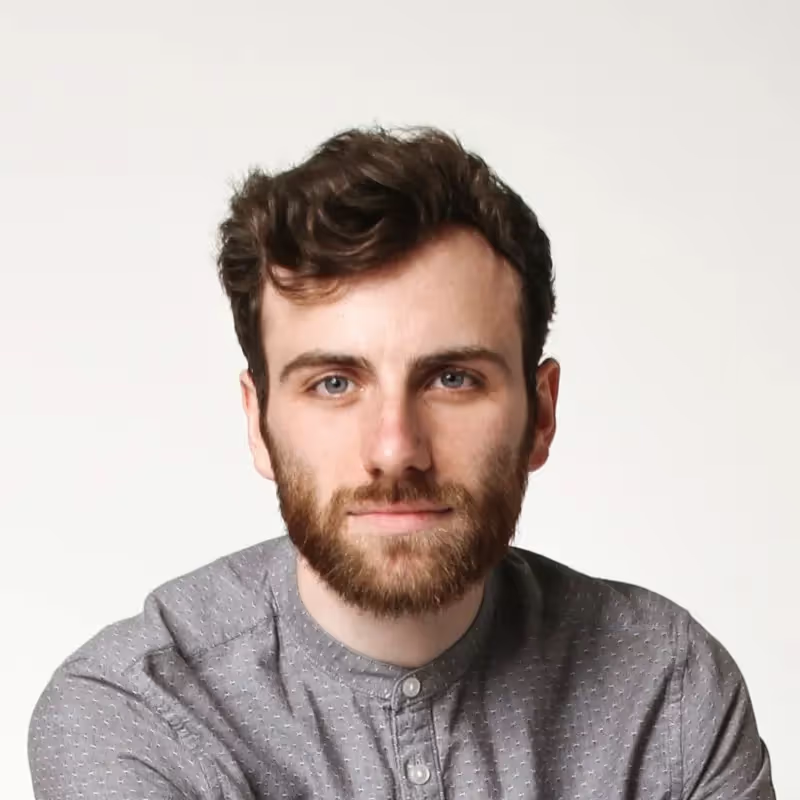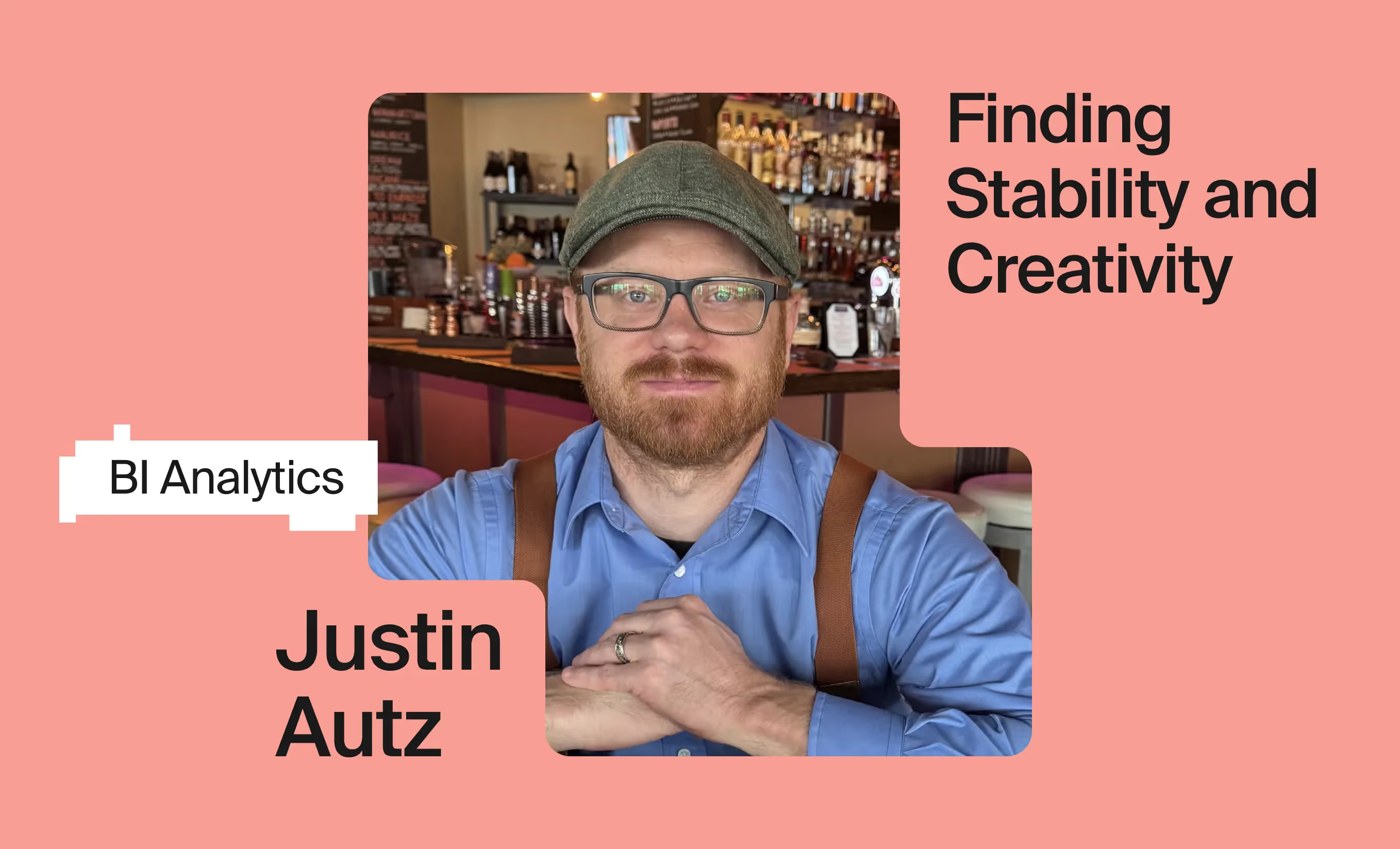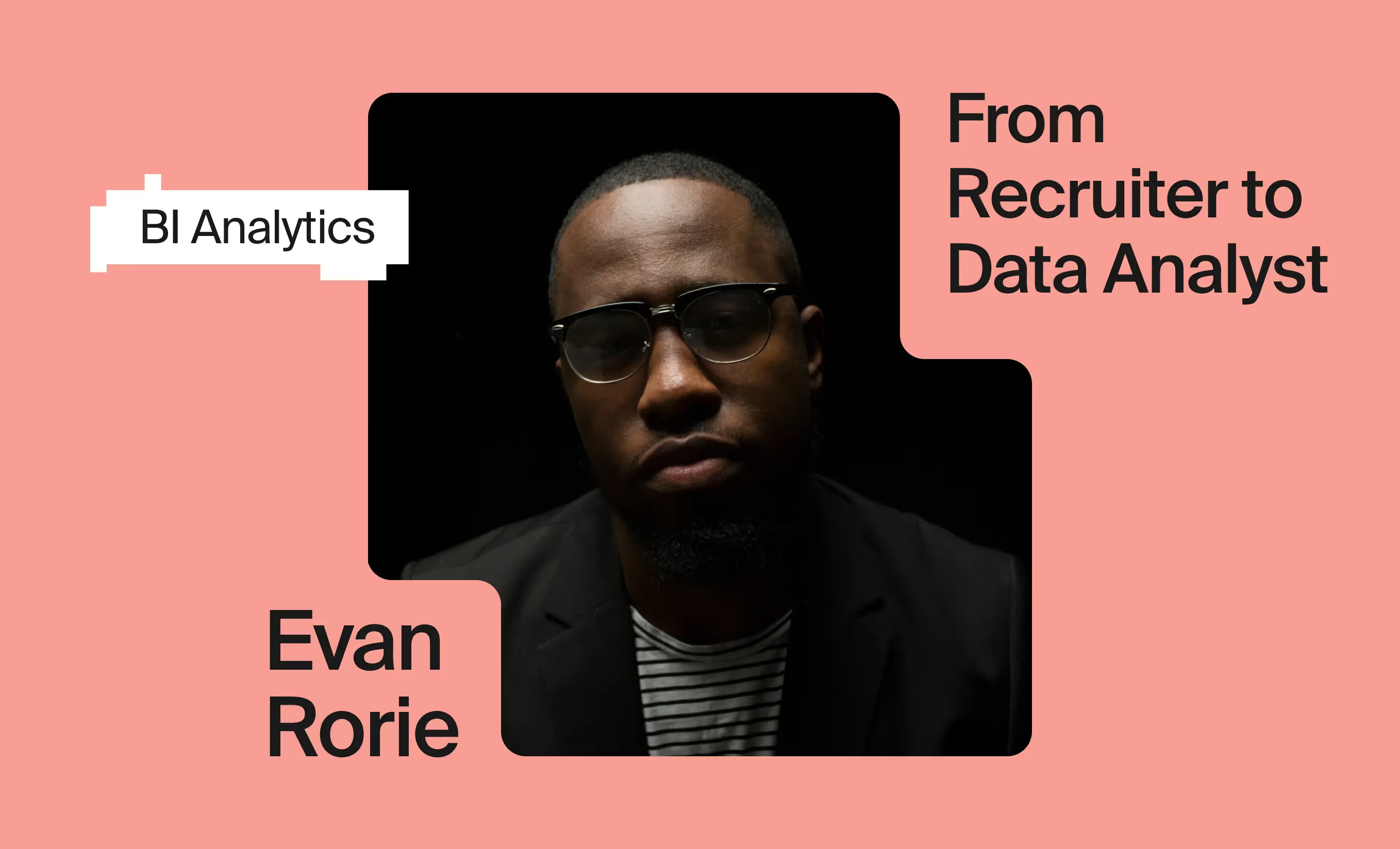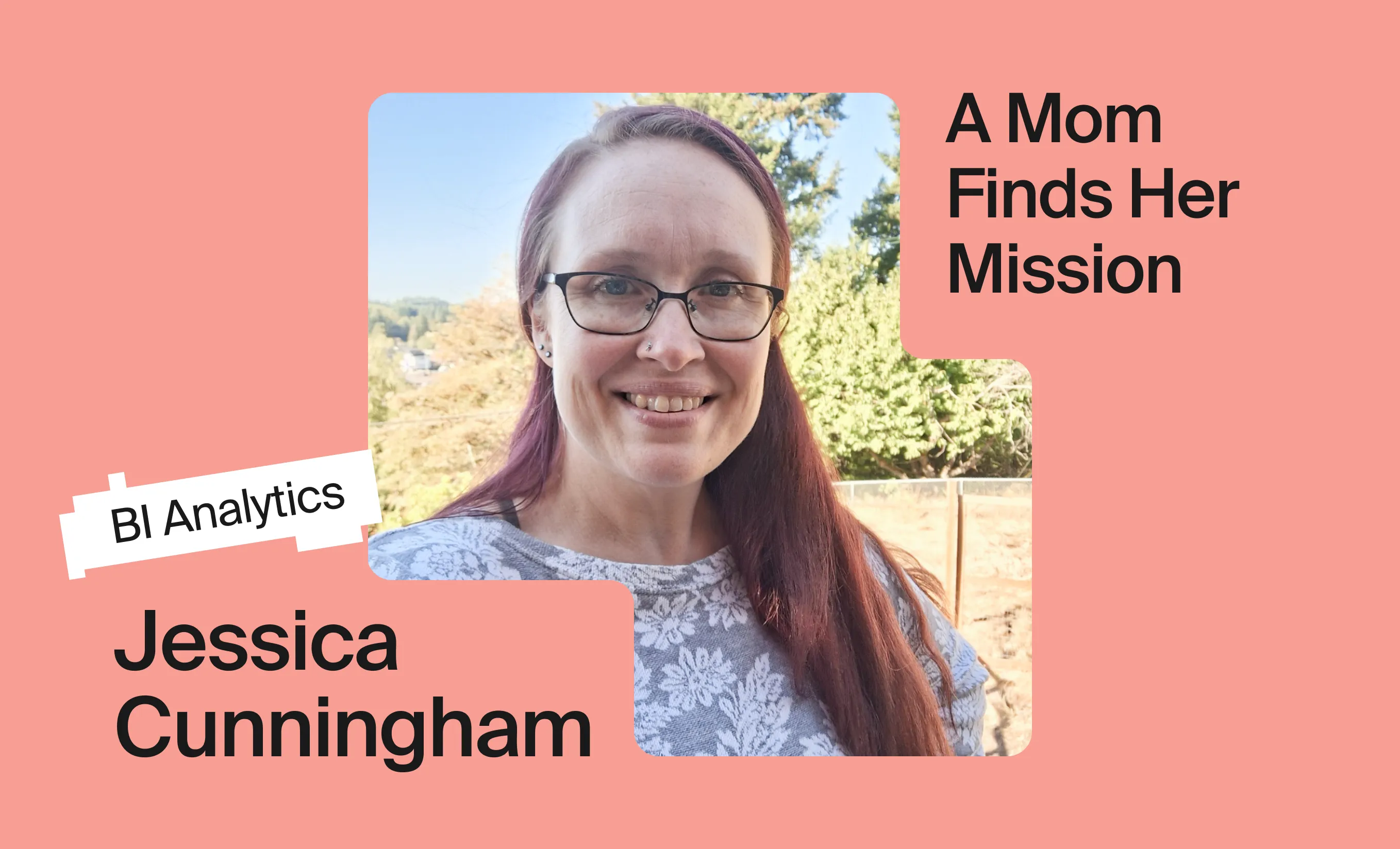Your path was clear. From early on, you knew exactly what you were going to do. Sure, your friends struggled to sketch out the trajectory of their lives, but you had things figured out.
And then you didn’t.
For whatever reason, all your well-laid plans became untenable, and you had to scramble to choose a heading. Now, years down that road, the good-enough, gotta-do-something philosophy has led you somewhere you’d rather not be. What should you do?
If you’re Marlon Nunez, you reflect, get curious, and enroll in a bootcamp. Here’s how TripleTen helped him achieve his professional dreams — and reclaim time for life.
A path reevaluated
Marlon had planned to be a doctor. He was most of the way done with two majors that would take him there — neuroscience and public health — before he got a good look at the actual day-to-day of working in healthcare. It shook him. “I think it wasn't until I shadowed a doctor the summer going into senior year that I realized I do not want to do this. I couldn't imagine telling someone awful news,” he said.
But he was basically done with his majors, so he wrapped them up and graduated. That just left one significant question: what should he do? Well, he’d had experience tutoring high school students, so he figured he’d try teaching. He joined Teach For America, which brought him to Boston.
After two years, he knew it wasn’t the job for him: “It was really rewarding, but the hours were killing me. At 6 a.m. I was driving 30 minutes to the school. Then, probably about like 6:30 or 7 p.m. I was going home. But then I was lesson planning, I was calling parents, I was grading tests. The work never ended.”
So he pursued another shift — this time to a school’s director of operations. In this position, he needed to handle massive amounts of data. “I was doing a lot of manual labor with student data, and that made me realize there needs to be an easier way to automate this,” he said. And when he started dabbling in Python to tackle this issue, he was hooked.
I really fell in love with it, and I realized that's what I wanted to do. The light bulb lit up in my head. I just knew. Marlon Nunez, TripleTen grad
He started out with self-guided learning on the side, but something wasn’t clicking. “It wasn't really structured. It was difficult for me to find time to force myself to do it.” Then, an ad for TripleTen popped up on YouTube. He was intrigued.
He started looking into bootcamps and decided to go with TripleTen, the one that got him interested in the first place, because of the balance of flexibility and accountability.
But he didn’t just sign up for one bootcamp. He enrolled in two. See, he was perfectly comfortable paying full price for one of TripleTen’s programs. But then he saw there was a half-off deal going on. “So I said, ‘If they're both 50% off and I was willing to pay the whole price, I might as well pay for both. Why not?’”
After talking to people in the tech industry, he decided to begin his learning journey with our Software Engineering bootcamp before moving on to data science.
Doubling down on learning tech
Marlon is clear about the difficulties he first encountered when learning the new profession. “At first it was a very hard learning curve. I felt very defeated. I remember staying up till like midnight some nights trying to make things work,” he said.
Sure, the program is part-time, and it is flexible, but real work is expected of students. That sudden ramp-up was a shock, but soon enough, he got a handle on things. “After a while, I got used to the learning curve, and it was a lot easier to grasp the material.”
A few key aspects helped. “The platform itself and the community that TripleTen created — whether it was via Discord or the office hours — were super valuable, and the tutors were always super helpful. There was always support there.”
Another feature that helped him ensure he mastered the material were our extensions. At TripleTen, students can request extra time if they need to review a subject they’re still shaky on. With Marlon, this happened when he had to learn a whole new coding philosophy: object-oriented programming (OOP).
“I found myself going through the material two or three times. I was reaching the point of having to submit that project, and I hadn't even started on it. It asked you to basically rewrite the last eight projects in this new format. And so I just ran out of time,” he said.
So he requested an extension, during which he dove into OOP and found the space he needed to master the new material. Then, thanks to all this, he was more than ready when he joined an externship, an opportunity to contribute to a real-world project with an actual tech company. It was an experience he still appreciates.
The externship really forced me to pick up things quickly, implement solutions quickly, be able to communicate, and be able to ask for help when I needed it — very valuable skills. Marlon Nunez, TripleTen grad
All this background formed a foundation that made his second bootcamp experience significantly less daunting. “By the time I got to data science, the material was a lot easier to pick up. So I actually sped through the first five sprints in data science,” he said.
That’s not to say it was completely simple, though. Once he got to later sprints, he still had to buckle down and commit himself to learning new information on methods, attributes, and syntax, among many other new topics. But his familiarity with TripleTen helped him through, as did a dedication to keeping consistent with his studies.
See, throughout all this, he’d still been working, but he managed to juggle it all by building a schedule and sticking to it. “I had to time block it. I had to have a routine schedule — that was the only way I would stay committed to it but also find the amount of time I needed to get it done.”
And he would have joined a second externship following his time at the Data Science bootcamp, but by that time, he already had a job.
The wisdom and determination to land the job
The job search required dedication, and there were times Marlon found himself discouraged. “It was not easy to take rejection at first,” he said. But, thanks to TripleTen, he had career professionals keeping him going. “I think the career coaches at TripleTen did a really good job of helping me stay committed when I wanted to just give up and stop looking for jobs.”
One big hurdle for him was feeling like he wasn’t cut out for the new field. “For me, imposter syndrome was huge,” he said. But when he started leaning into his experience in education and targeting edtech companies, he regained a sense of confidence and got an edge on the competition. After all, he’d been the precise person these products targeted.
Prior experience was very valuable because I not only came from the perspective of ‘Hey, I want to code for your company and create products,’ but I also understood the users that are trying to use this product. I've been in their shoes. Marlon Nunez, TripleTen grad
This synthesis took him far, and in November 2024, he landed a job as a technical support engineer at MasteryPrep, an edtech company focusing on helping school districts improve their outcomes on standardized tests such as the ACT or SAT.
The role’s responsibilities merge the communication skills he brought from being an educator with the tech skills he gained through TripleTen: “I'm dealing with a lot of customers day to day, but it's also allowing me to solve problems, fix bugs and interact with code at the same time.”
He’s not stopping there, and the company’s eager to invest in his future. "The company's been very clear about helping me achieve my goal by helping me get into a backend engineer role" he said.
And he’s been able to pursue his new professional passion while also finding more time for the things that matter. “My life has changed drastically. I find myself with better sleeping habits. I find myself being able to see people more. I go to the gym more now,” he said.
Reflecting on it all, he values this time most of all. “You're going to get old, and then you’ll wonder, ‘Where did all that time go?’ You work from the time you graduate college to the time you retire, and then you’re older, and you don't want to do as much because you’re older. So it's nice to be able to live in the moment. And I think this field, this career, is definitely allowing me to do that.”
Want to follow his lead? See if a bootcamp is right for you
Curious if his path might be the one you should follow as well? Take our quick bootcamp quiz to find out.







.webp)







